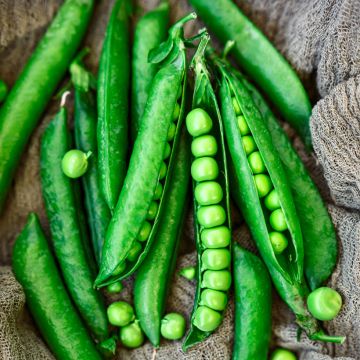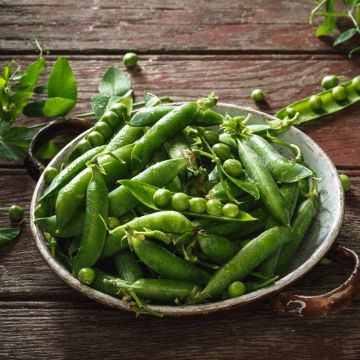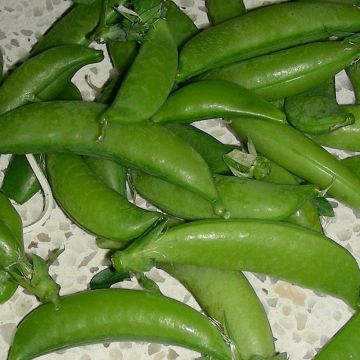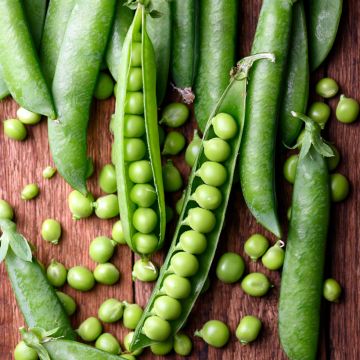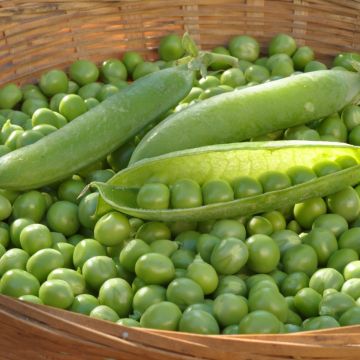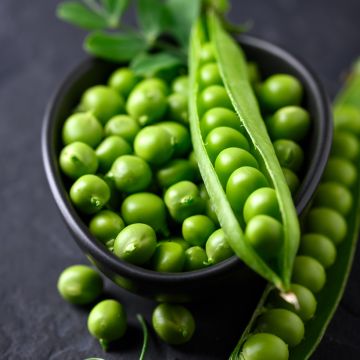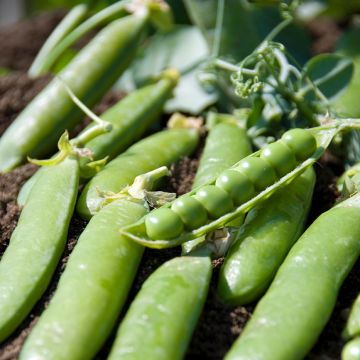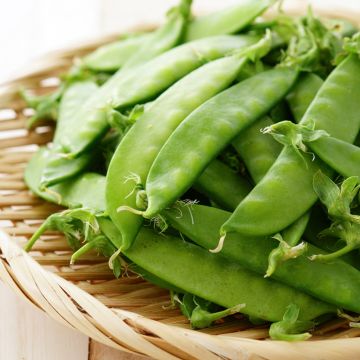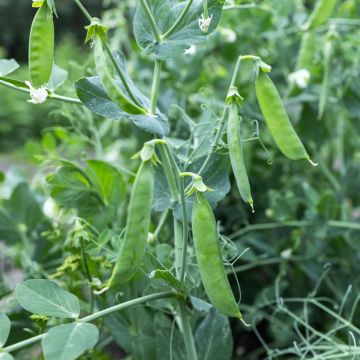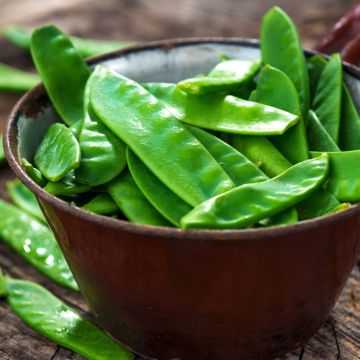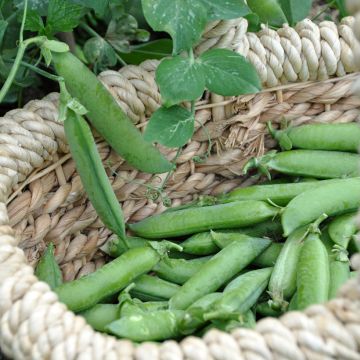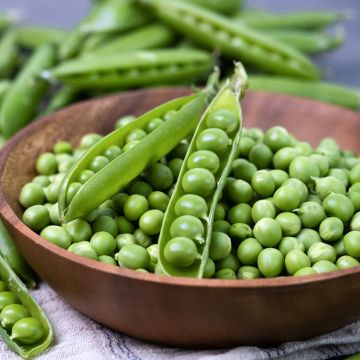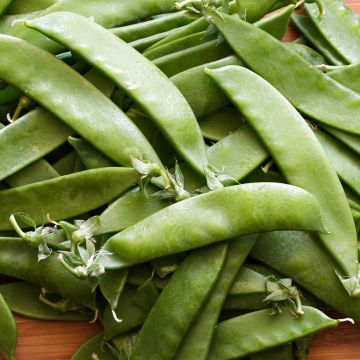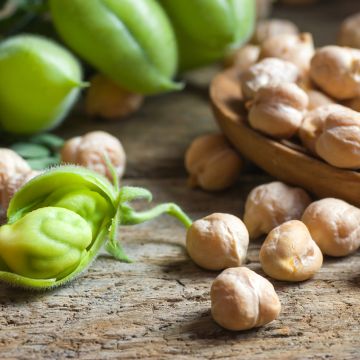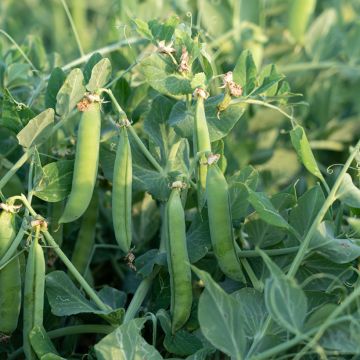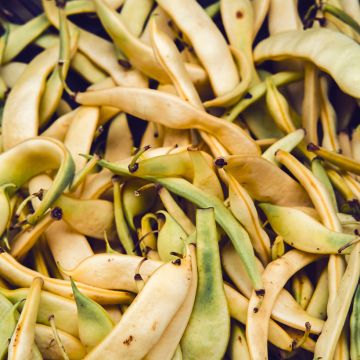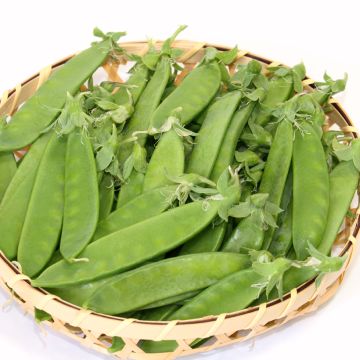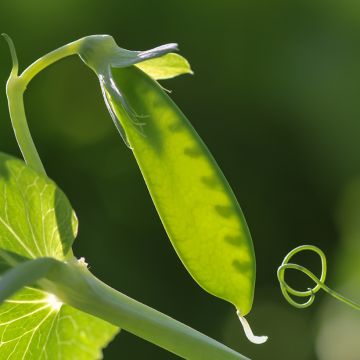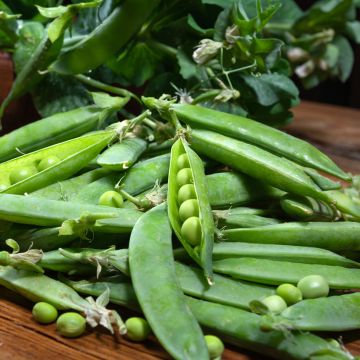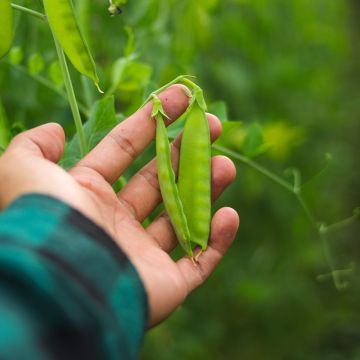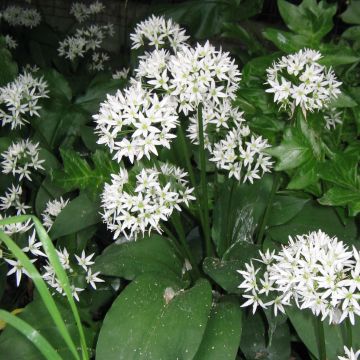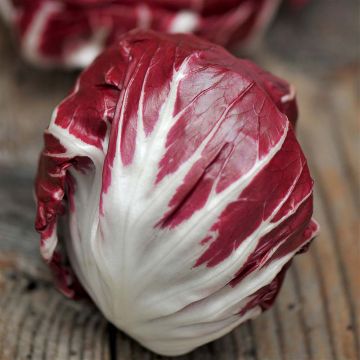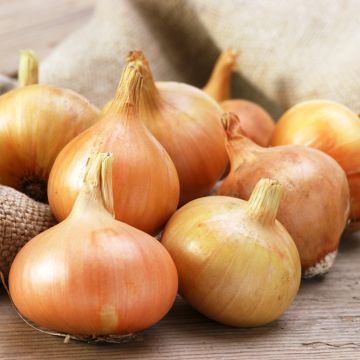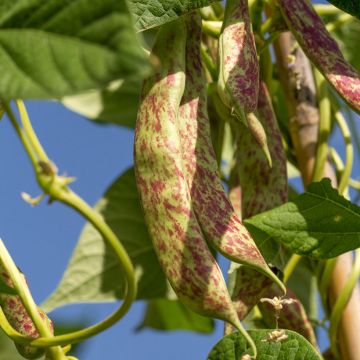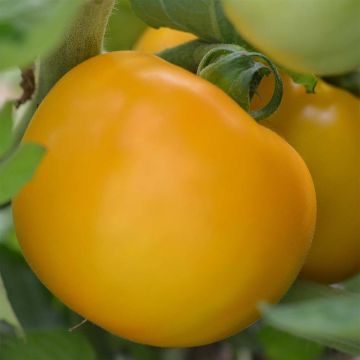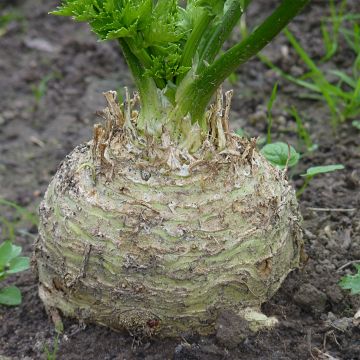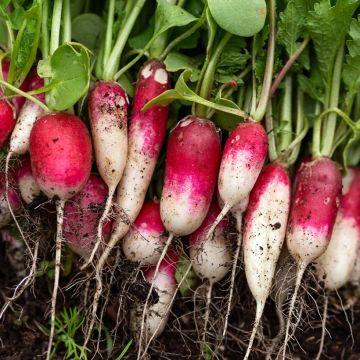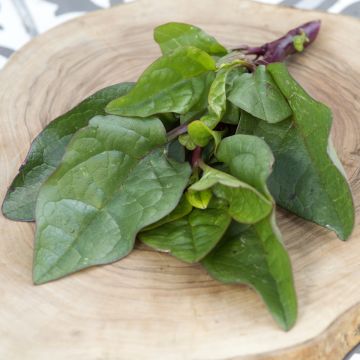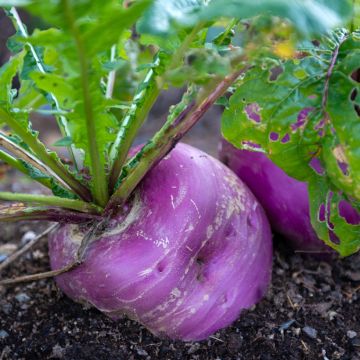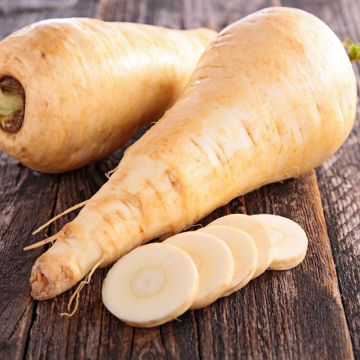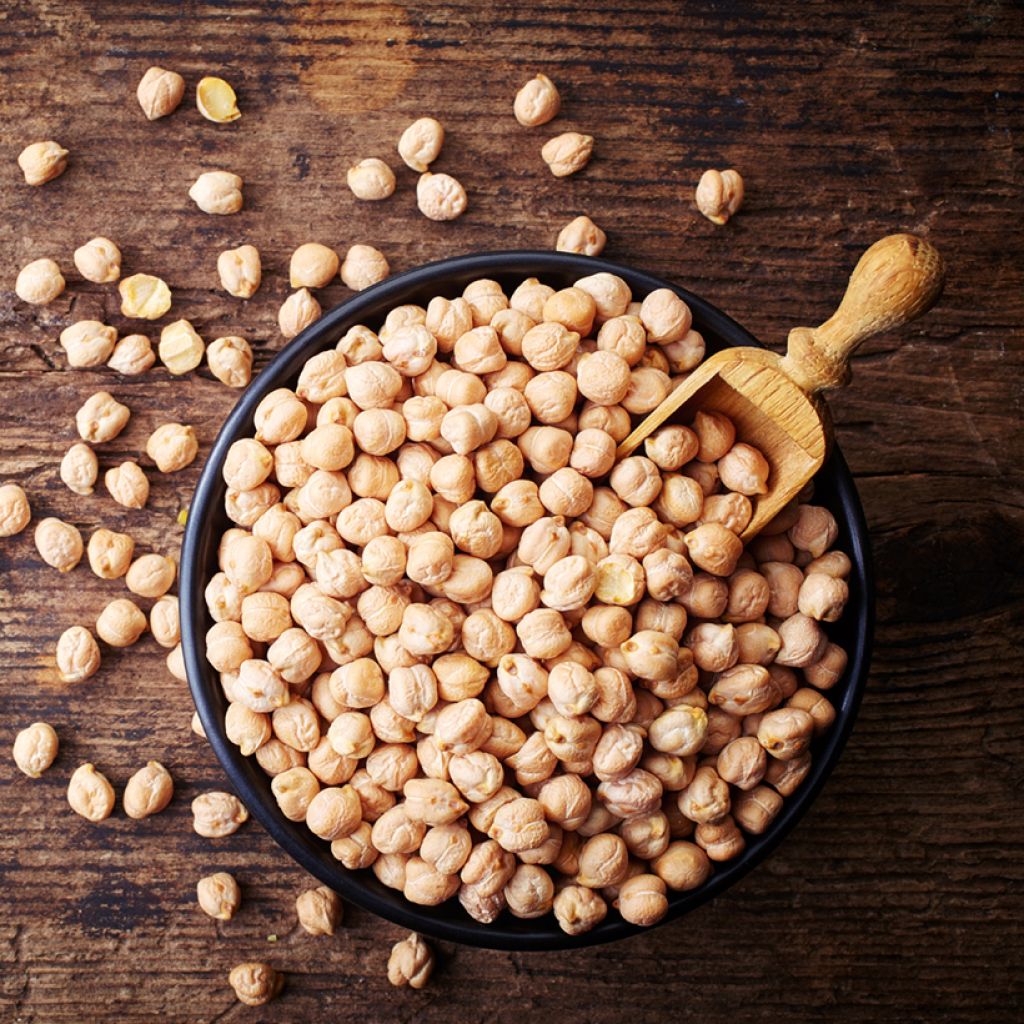

Cicer arietinum Twist
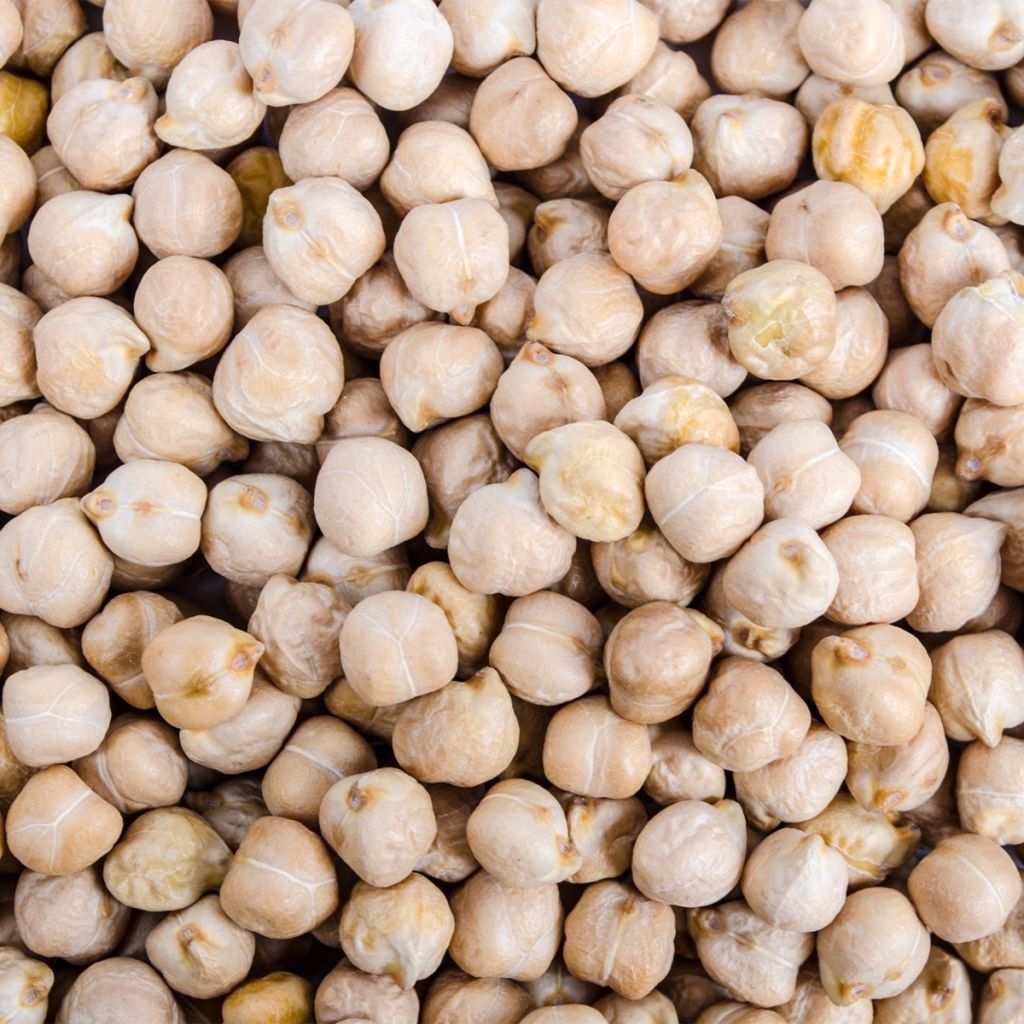

Cicer arietinum Twist
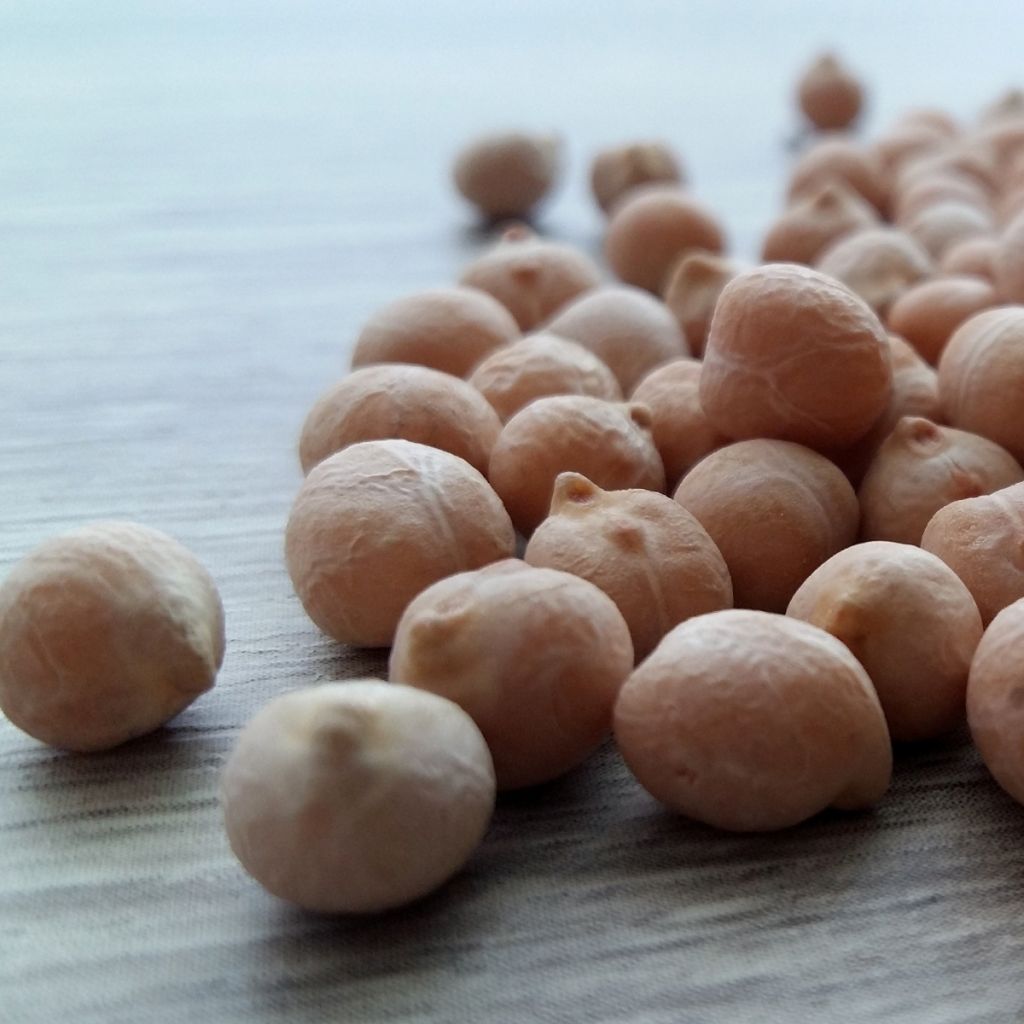

Cicer arietinum Twist
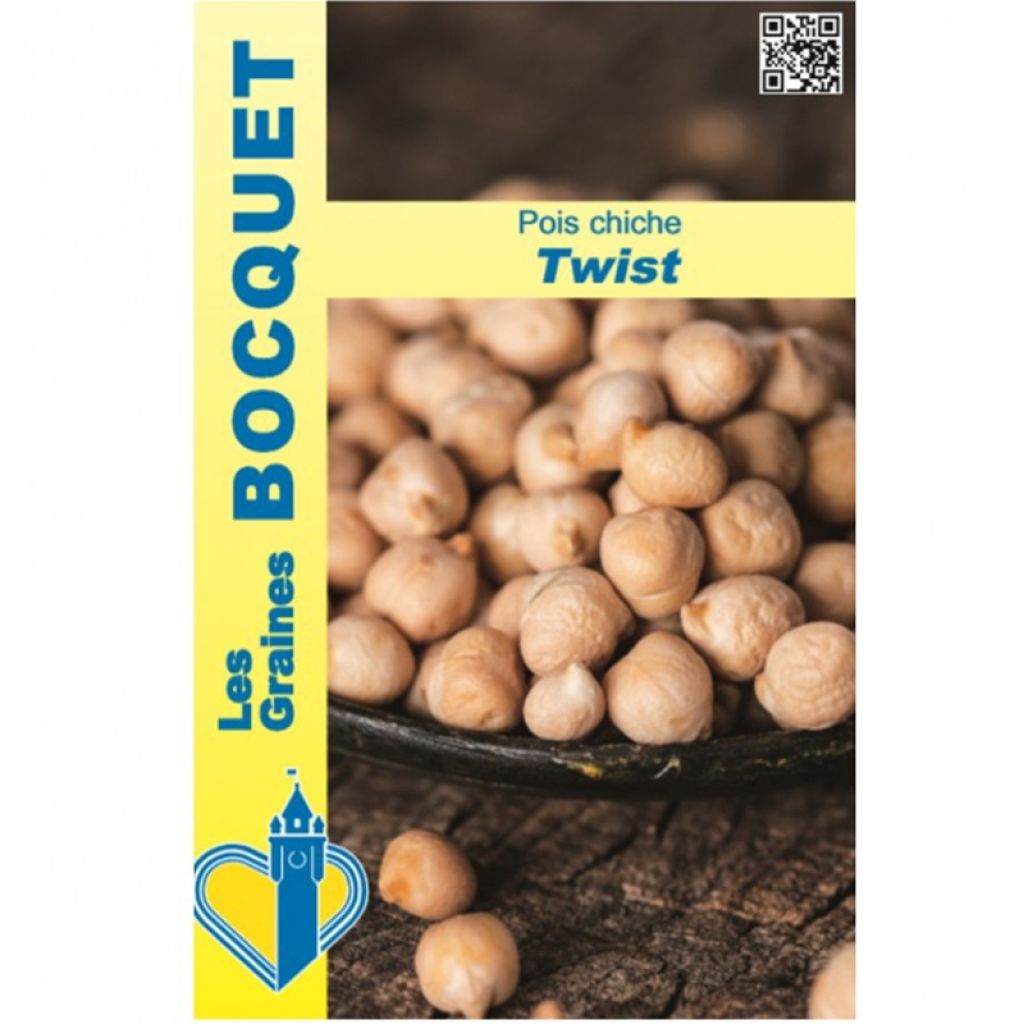

Cicer arietinum Twist
Cicer arietinum Twist
Cicer arietinum Twist
Why not try an alternative variety in stock?
View all →This plant carries a 6 months recovery warranty
More information
We guarantee the quality of our plants for a full growing cycle, and will replace at our expense any plant that fails to recover under normal climatic and planting conditions.
Seed-only orders are dispatched by sealed envelope. The delivery charge for seed-only orders is €3.90.
Description
The chickpea Twist is a bushy annual vegetable plant that grows to a height of 40 to 50 cm (16 to 20in). This Twist variety is semi-late, hardy, less prone to diseases and lodging. Each plant produces 30 to 40 short and villous pods typically containing 2 beige-coloured seeds, measuring 7 to 9 mm (0in) in diameter, round to angular. Chickpeas are more commonly grown in our southern regions. They are a low water and nutrient-demanding plant that thrives in deep, well-drained soils, preferably calcareous (pH 6.5 to 8). They are sown from December to February in the southeast, and from February to March-April in the southwest and further north. Harvest begins in July.
The origin of the chickpea, in Latin Cicer arietinum, is in the Middle East and Eastern Mediterranean, where wild varieties still exist. It belongs to the Fabaceae family, like its relatives peas and beans. It is an herbaceous annual plant with an upright and branched habit. Its leaves are compound, consisting of 5 to 7 pairs of villous leaflets with dentate margins. Chickpea flowers are solitary, of the "papilionaceous" type, reaching 1.2 cm (1in) in length. They have white or pinkish-purple to violet petals, depending on the varieties. The fruit is a small inflated and rounded pod, reaching 3 cm (1in) in length and 1.5 cm (1in) in width, yellow in colour, covered with a fuzz. Each pod contains one to two globular seeds, bossed, ending in points, with a rough or smooth surface depending on the selections. The dry seeds are beige, more or less light in colour.
Twist chickpea thrives in drought and high temperatures. For uniform seedling emergence, the ideal soil temperature is around 15°C (59°F), although chickpeas begin to grow as soon as the soil reaches 5°C (41°F). The temperature for optimal growth is around 20°C (68°F). It is sensitive to humidity and cold, making it well adapted to our southern regions.
Harvest
Chickpeas are harvested between three and four months after sowing, often starting in July when the pods have turned brown and are almost dry.
Storage
Chickpeas can be stored, once fully dry, in an airtight jar, protected from light.
Gardener's tip
Peas, like all plants in the Fabaceae family, enrich the soil with nitrogen through nodules on their roots. They are part of a four-year crop rotation. Peas are low-nutrient-demanding plants.
Report an error about the product description
Harvest
Plant habit
Foliage
Botanical data
Cicer
arietinum
Twist
Fabaceae
Cultivar or hybrid
Annual
Other Pea seeds
Planting and care
Sowing from December to May depending on the regions.
- In the southeast: from December to February
- In the southwest: from February to April
- Further north: in April-May
Pea seeds can be sown in rows spaced 40 cm (16in) apart, in a flat furrow that is 5 cm (2in) wide and 1 cm (0in) deep, with the seeds placed every 10 cm (4in). The seeds are then covered with a little fine soil. The rows are lightly firmed with the back of a rake. Germination takes about 8 days.
Once germination has occurred, thin out the rows, leaving only one young plant every 25 cm (10in).
Maintenance.
To prevent diseases that attack chickpeas such as powdery mildew or rust, it is important to regularly hoe and weed. Chickpeas thrive in warm, sunny areas with deep, well-drained, slightly alkaline soil.
Chickpeas are considered a green manure, as they are a soil-improving plant that adds nitrogen to the soil.
Seedlings
Care
Intended location
This item has not been reviewed yet - be the first to leave a review about it.
Vegetable seeds
Haven't found what you were looking for?
Hardiness is the lowest winter temperature a plant can endure without suffering serious damage or even dying. However, hardiness is affected by location (a sheltered area, such as a patio), protection (winter cover) and soil type (hardiness is improved by well-drained soil).

Photo Sharing Terms & Conditions
In order to encourage gardeners to interact and share their experiences, Promesse de fleurs offers various media enabling content to be uploaded onto its Site - in particular via the ‘Photo sharing’ module.
The User agrees to refrain from:
- Posting any content that is illegal, prejudicial, insulting, racist, inciteful to hatred, revisionist, contrary to public decency, that infringes on privacy or on the privacy rights of third parties, in particular the publicity rights of persons and goods, intellectual property rights, or the right to privacy.
- Submitting content on behalf of a third party;
- Impersonate the identity of a third party and/or publish any personal information about a third party;
In general, the User undertakes to refrain from any unethical behaviour.
All Content (in particular text, comments, files, images, photos, videos, creative works, etc.), which may be subject to property or intellectual property rights, image or other private rights, shall remain the property of the User, subject to the limited rights granted by the terms of the licence granted by Promesse de fleurs as stated below. Users are at liberty to publish or not to publish such Content on the Site, notably via the ‘Photo Sharing’ facility, and accept that this Content shall be made public and freely accessible, notably on the Internet.
Users further acknowledge, undertake to have ,and guarantee that they hold all necessary rights and permissions to publish such material on the Site, in particular with regard to the legislation in force pertaining to any privacy, property, intellectual property, image, or contractual rights, or rights of any other nature. By publishing such Content on the Site, Users acknowledge accepting full liability as publishers of the Content within the meaning of the law, and grant Promesse de fleurs, free of charge, an inclusive, worldwide licence for the said Content for the entire duration of its publication, including all reproduction, representation, up/downloading, displaying, performing, transmission, and storage rights.
Users also grant permission for their name to be linked to the Content and accept that this link may not always be made available.
By engaging in posting material, Users consent to their Content becoming automatically accessible on the Internet, in particular on other sites and/or blogs and/or web pages of the Promesse de fleurs site, including in particular social pages and the Promesse de fleurs catalogue.
Users may secure the removal of entrusted content free of charge by issuing a simple request via our contact form.
The flowering period indicated on our website applies to countries and regions located in USDA zone 8 (France, the United Kingdom, Ireland, the Netherlands, etc.)
It will vary according to where you live:
- In zones 9 to 10 (Italy, Spain, Greece, etc.), flowering will occur about 2 to 4 weeks earlier.
- In zones 6 to 7 (Germany, Poland, Slovenia, and lower mountainous regions), flowering will be delayed by 2 to 3 weeks.
- In zone 5 (Central Europe, Scandinavia), blooming will be delayed by 3 to 5 weeks.
In temperate climates, pruning of spring-flowering shrubs (forsythia, spireas, etc.) should be done just after flowering.
Pruning of summer-flowering shrubs (Indian Lilac, Perovskia, etc.) can be done in winter or spring.
In cold regions as well as with frost-sensitive plants, avoid pruning too early when severe frosts may still occur.
The planting period indicated on our website applies to countries and regions located in USDA zone 8 (France, United Kingdom, Ireland, Netherlands).
It will vary according to where you live:
- In Mediterranean zones (Marseille, Madrid, Milan, etc.), autumn and winter are the best planting periods.
- In continental zones (Strasbourg, Munich, Vienna, etc.), delay planting by 2 to 3 weeks in spring and bring it forward by 2 to 4 weeks in autumn.
- In mountainous regions (the Alps, Pyrenees, Carpathians, etc.), it is best to plant in late spring (May-June) or late summer (August-September).
The harvesting period indicated on our website applies to countries and regions in USDA zone 8 (France, England, Ireland, the Netherlands).
In colder areas (Scandinavia, Poland, Austria...) fruit and vegetable harvests are likely to be delayed by 3-4 weeks.
In warmer areas (Italy, Spain, Greece, etc.), harvesting will probably take place earlier, depending on weather conditions.
The sowing periods indicated on our website apply to countries and regions within USDA Zone 8 (France, UK, Ireland, Netherlands).
In colder areas (Scandinavia, Poland, Austria...), delay any outdoor sowing by 3-4 weeks, or sow under glass.
In warmer climes (Italy, Spain, Greece, etc.), bring outdoor sowing forward by a few weeks.

































